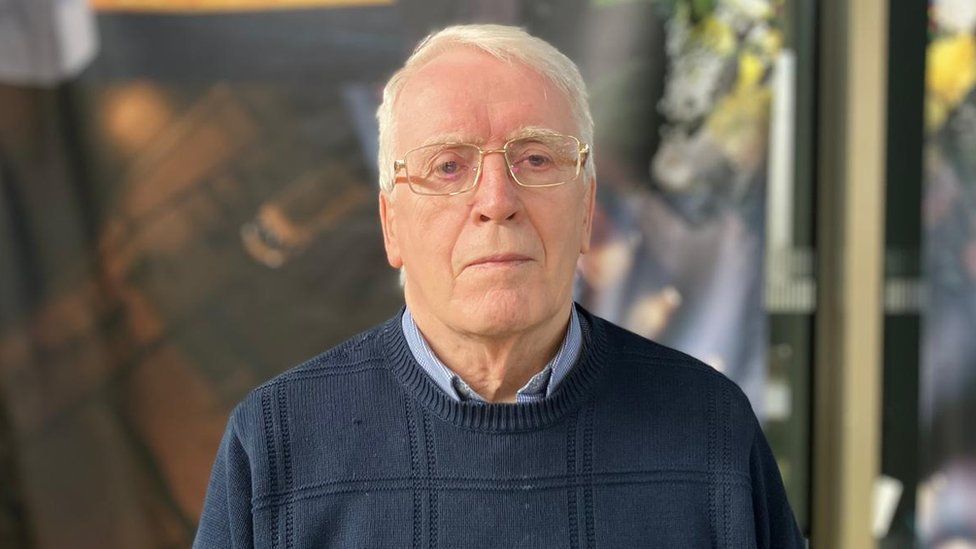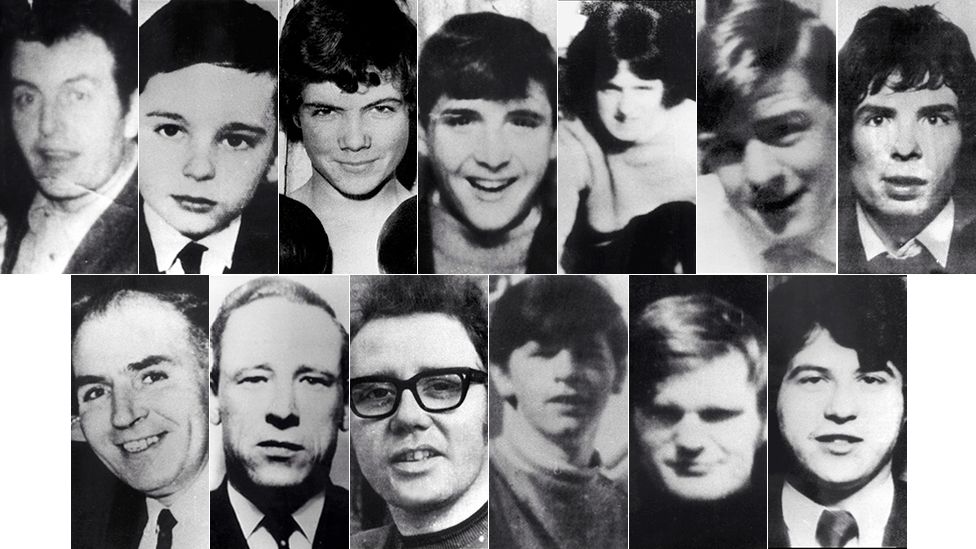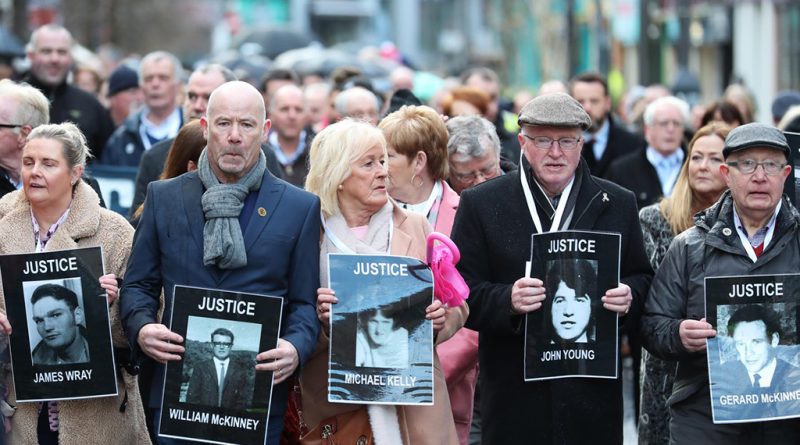Bloody Sunday: No charges for soldiers accused of giving false evidence
Fifteen former soldiers investigated for perjury over Bloody Sunday will not face any charges.
Fourteen Catholic men were killed when soldiers opened fire on marchers during a civil rights march in Londonderry on 30 January 1972.
In 2010, Lord Saville’s inquiry report stated some soldiers had knowingly put forward false accounts.
On Friday, the Public Prosecution Service (PPS) said there was “insufficient” evidence.
It found the same in respect of an alleged former member of the IRA.
PPS senior public prosecutor John O’Neill said the prosecution team had examined a “vast amount of material” and were faced with “complex evidential and legal issues”.
Prosecutors had carefully considered all the available evidence against the fifteen ex-soldiers and the former alleged member of the Official IRA, he said.
The Bloody Sunday families were informed of the decision on Friday morning.

John Kelly, whose brother Michael was killed on Bloody Sunday, said the families “are disappointed and perplexed” by the PPS decision.
Michael, age just 17, was shot in the stomach while standing at the rubble barricade on Rossville Street. Both the Saville and Widgery enquiries concluded that Kelly was unarmed. The Saville Inquiry concluded that ‘Soldier F’ shot Kelly.
“We consider that today’s ruling by the PPS is an affront to the rule of law and a continuation of the injustice that was perpetuated on Bloody Sunday,” he said.
He said while the people of Derry cannot forget the events of Bloody Sunday, “the Parachute Regiment, who caused all of the deaths and injury on that day, apparently cannot recall it”.
Solicitor Ciarán Shiels, who represents some of the victims’ relatives, said the families are disappointed by the PPS decision.
“But they are certainly not fooled by it,” he said.
He added: “We will carefully consider the reasons we have received today and do not rule out the prospect of further legal action”.
Gerry Duddy, whose brother John was among those killed, called the PPS decision a “slap in the teeth”.
“We made a promise after the tragedy of Bloody Sunday that we would seek justice for our loved ones. Until our last breath that is what we will do”.
Foyle MP Colum Eastwood said the decision is “another difficult moment” for the Bloody Sunday families.
“The campaign for justice is not over, not by a long stretch, and we’ll continue to stand with the families for as long as it takes,” the leader of the Social Democratic and Labour Party said.
The Democratic Unionist Party’s Gregory Campbell said the PPS decision “should come as no surprise”.
Mr Campbell, the East Londonderry MP, said the passing of time makes “any decision not to proceed in the absence of new compelling evidence fairly obvious”.

Lord Saville’s official inquiry into the killings, published in 2010, concluded that all victims were innocent and posed no threat.
It also stated soldiers involved in the shooting had knowingly put forward false accounts.
Three particular issues arose for the prosecution team, Mr O’Neill said.
“Firstly, although the Bloody Sunday Inquiry may have rejected the evidence of individuals, it did not always express those findings in terms amounting to the criminal standard of proof.
He added: “Secondly, many of the findings related to the rejection of accounts given by former soldiers in 1972. The PPS has concluded that, for a number of legal reasons, those accounts from 1972 would not be admissible in criminal proceedings today”.
Mr O’Neill said a third issue arose in that the Bloody Sunday Inquiry’s full amount of evidence was not available to the prosecution team.
He acknowledged the decision may be “another difficult day” for the families of those killed and injured and said the decision does not “undermine the findings of the Bloody Sunday Inquiry”.
In 2019, the PPS announced that one former paratrooper, identified as Soldier F, would be prosecuted for murder and attempted murder.


